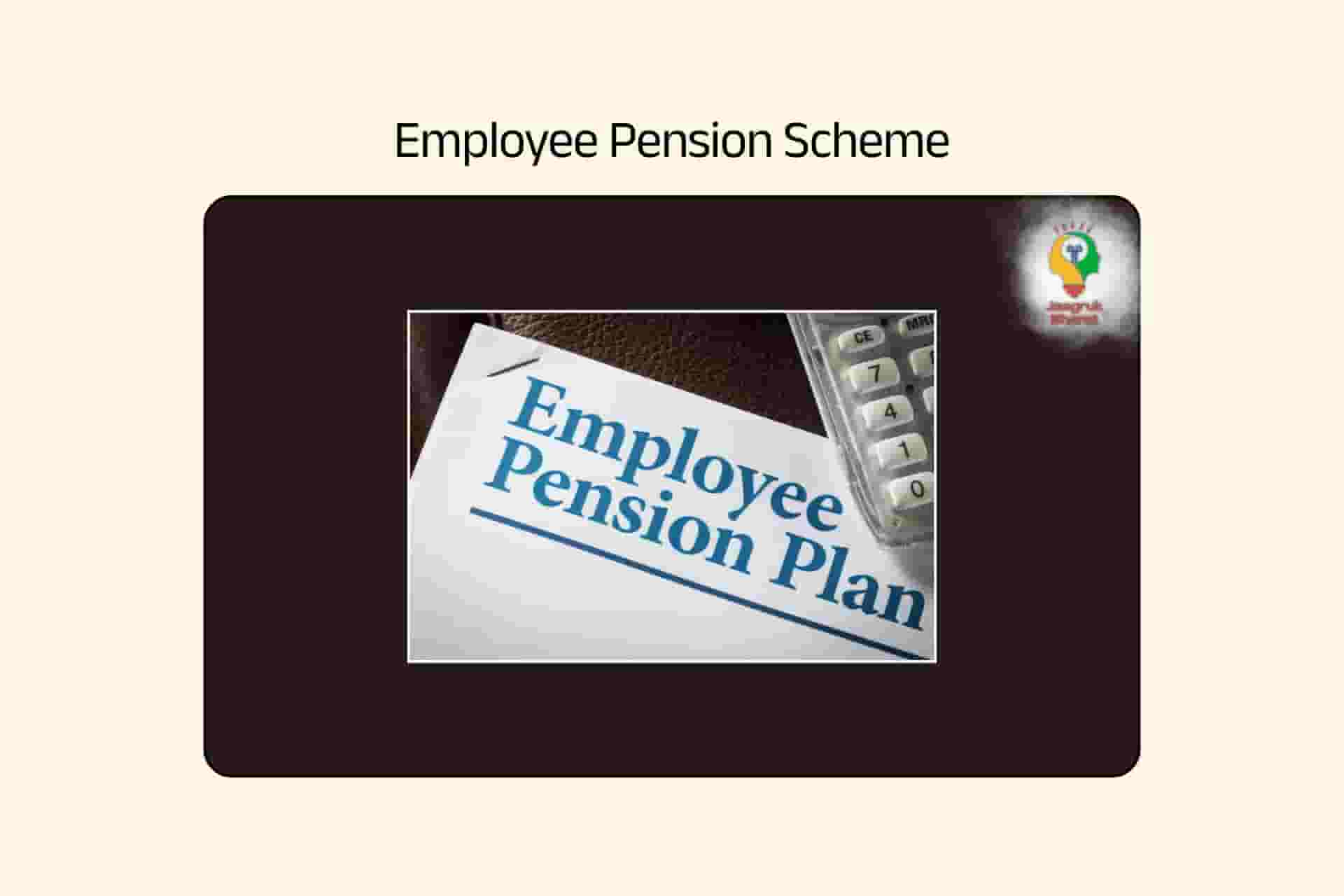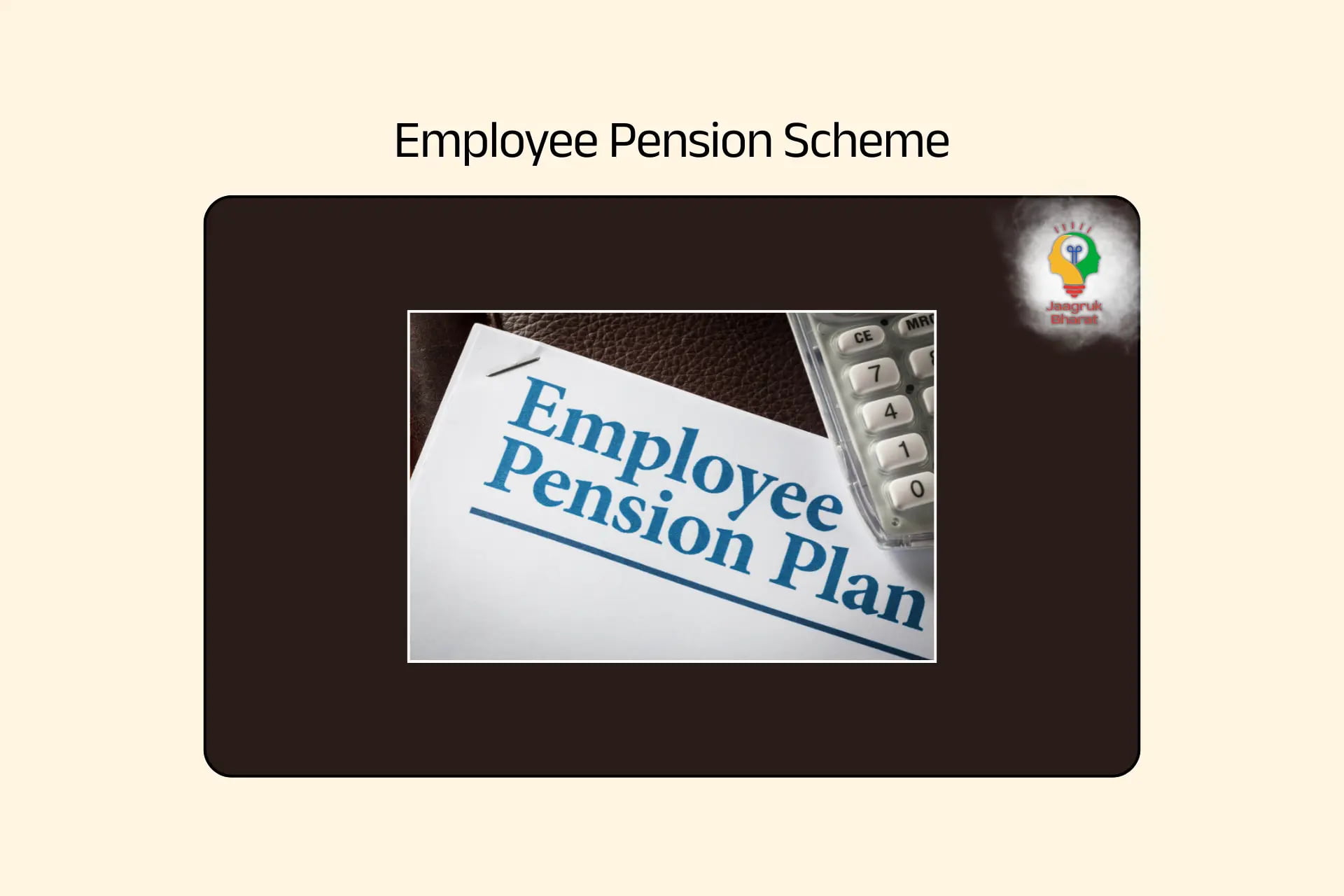Employee Pension Scheme: Eligibility, Types, & Complete Guide
Updated: 09-10-2025 at 4:54 AM
3k


The government of India recognises the important role played by the people as employees in various sectors which is why they established the Employees’ Provident Fund Organisation (EPFO). EPFO was established to streamline the funds of the organisation and help secure the financial lives of employees after retirement through the Employees’ Pension Scheme.
The Employees’ Pension Scheme is a pension scheme designed for employees after they reach the retirement age of 58, which is the retirement age in the organised sector. The scheme aims to help retired employees lead fulfilling lives without any financial issues.
Read the article to learn about the features, benefits, eligibility, and all other related details for EPS for a better understanding.
Overview
| Name of the scheme | Employee Pension Scheme (EPS) |
|---|---|
| Under the | Employees’ Provident Fund Organisation (EPFO) |
| Launched in | 1995 |
| Target group | Employees working in the organised sector |
| Contribution | 12% |
| Minimum years of service | 10 years |
| Benefits | Fixed monthly pension to employees after retirement |
Read More: EPFO 3.0: Transformative Updates Await PF Members In 2025
What Is The Employee Pension Scheme?
The Employee Pension Scheme (EPS) under the Employees’ Provident Fund Organisation (EPFO) was introduced to provide a stable income to employees after they reach the retirement age. The Employee Pension Scheme is a social security scheme only given to employees working in the organised sector for at least 10 years. Both, the employer and the employee contribute 12% to an employee’s EPF account wherein the employer’s share of 8.33% goes towards the employee’s EPS, and the rest 3.67% goes towards the employee’s EPF account.
Features
The Employees’ Pension Scheme was introduced under EPFO to secure financial stability for employees after retirement. Some of its key features are laid down below:
-
Fixed returns: EPS guarantees a fixed monthly income to retired employees so that they can live financial-worry-free lives after retirement.
-
Minimum pension amount: Employees are entitled to receive a minimum monthly pension amount of Rs. 1000.
-
Transfer of pension: If the pensioner dies, their spouse is entitled to receive the same pension till their lifetime and after that, their children are entitled to the pension till they reach the age of 25 years.
Benefits
The Employees’ Pension Scheme offers several benefits to the employees that make it attractive and stable to organised labourers. Some of its major benefits are mentioned below:
-
Financial stability: As employees are provided with a fixed monthly income under EPS, it provides a secure financial shelter to them after retirement.
-
Years of service: Employees working in the organised sector for at least 10 years are eligible to get covered under the Employees’ Pension Scheme.
-
Disability: If an employee suffers from a disability (partial or complete), they are also entitled to reap the benefits of EPS even if they served less than the mentioned years of service.
Eligibility Criteria For Employees’ Pension Scheme
Interested individuals first need to ensure whether they fit the eligibility criteria. The list of eligibility criteria for the Employees’ Pension Scheme are as follows:
-
The employee must be a member of EPFO.
-
The employee must’ve completed 10 years of service in the organised sector.
-
The employee must have reached the age of 58 years. However, employees can also withdraw funds at reduced rates of 4% from EPS from the age of 50 years which will be deducted every year till they reach the age of 58 years.
-
Employees can also choose to wait for 2 more years and enjoy their EPS after attaining the age of 60 years at an additional rate of 4% each year.
How Would The Pension Be Calculated Under The EPS?
The pension is calculated under EPS based on the pensionable salary and the pensionable service. The formula used to calculate the employee’s pension is:
Pensionable salary x Pensionable service/ 70, wherein,
-
Pensionable salary: The average monthly salary of the employee drawn in the last 60 months before retirement is the pensionable salary. If there are non-contributory periods, those days will not be considered and the benefit will be carried forward.
-
Pensionable service: The duration of time that the employee served is the pensionable service. The total duration of service under all the employers is counted and the employees are required to submit an EPS Certificate to the employer whenever they change jobs. The pensionable service is calculated on a 6-month basis. Employees also get a bonus of 2 years after completing 20 years of service.
Types Of Pensions Under Employees’ Pension Scheme
There are some types of pensions under the pension scheme under the EPFO. Major types of pension under EPS are listed below:
| Type of Pension | Description |
|---|---|
| Widow pension | After the death of a pensioner, their widow is entitled to receive the pension amount till they remarry someone else. |
| Child pension | In case both, the pensioner and their widow die, their children (maximum of two) are entitled to get the pension of 25% of the widow pension till they reach the age of 25 years. |
| Orphan pension | If for instance, the pensioner dies and has no widow, their children (maximum of two) will be entitled to receive a monthly orphan pension of 75% of the widow's pension. |
| Reduced pension | Employees have an option of withdrawing funds from EPS at the age of 50 itself. However, the pension amount will be reduced by 4% every year till they reach the age of 58. |
Pension Forms
Employees are required to fill out some pension forms to reap the benefits of the Employees’ Pension Scheme. The forms are mentioned below:
| Pension form | For | Purpose |
|---|---|---|
| Form 10C | Member | Used to withdraw funds from EPS through EPS Certificate before completing 10 years of service |
| Form 10D | Member | To withdraw funds from EPS after 50 years of age |
| Life Certificate | Pensioner/Guardian | Pensioner submits this form to prove that they are alive to keep receiving the pension every month |
| Non-remarriage Certificate | Widow/Widower | To be submitted by the widow/widower of the pensioners if they remarry someone else |
How To Check One’s EPS Amount?
An employee with EPS can check the total EPS amount through their EPF passbook. Please check the last column of the passbook wherein the total EPS contribution is mentioned. One can check the EPS passbook by visiting the EPF passbook portal by filling in their UAN number and password.
How To Withdraw From An EPS Account?
The process of withdrawal has been simplified by incorporating technological aid. One can withdraw funds from one’s EPS account by following some simple steps:
Step 1: Please visit the official website of the EPFO.
Step 2: On the right side of the webpage, enter the Universal Account Number (UAN) along with the password to log in.
Step 3: There is an ‘Online Services Tab’, click on it and choose the relevant claim form.
Step 4: Fill in your bank account number linked with the PF Account and click on ‘verify’ after which you’d have to mark ‘yes’ to an undertaking certificate.
Step 5: After completing the details, a pop-up will appear on the screen with the ‘I want to apply for’ option.
Step 6: Click on ‘Only PF Withdrawal (form 19).
Step 7: Fill in the necessary details such as mobile number, aadhaar card, and permanent address which would appear on the screen after clicking on ‘only PF withdrawal’.
Step 8: The withdrawal request is submitted and one will receive a reference number for the same as well. The amount is usually credited within 2-3 weeks.
What Happens To EPS In Case One Changes Jobs?
In case an employee changes jobs, their respective funds from their EPF account will be transferred to a new member ID but the pension amount will not be transferred and will remain in the old member ID. This segregation will help the authorities and the employee keep track of the number of service years and the EPS amount in different passbooks.
Some Important Points About Employees’ Pension Scheme
There are some important things that one should know about EPS before you apply for it. All those that are mentioned below, let us have a look at them:
-
Contributions are made by the employer only.
-
The employer and the employee contribute 12% to an employee’s EPF account wherein the employer’s share of 8.33% goes towards the employee’s EPS, and the rest 3.67% goes towards the employee’s EPF account.
-
Employee’s pay comprises basic pay for Dearness Allowance (DA), retaining allowance, and food concessions.
-
Employers are required to contribute within 15 days of the end of the month.
-
The retirement age is 58 years and the minimum years of service is 10 years.
Conclusion
The Employees’ Pension Scheme administered by the Employees’ Provident Fund Organisation (EPFO) is a financial umbrella designed for employees so that they can continue living their lives even after retirement without any financial worry.
You can also reach out to Jaagruk Bharat through their community page with any questions that you might come across.
0
0
3k
0
0
3k Views
2
No comments available





Our Company
Home
About
T&C
Privacy Policy
Eula
Disclaimer Policy
Code of Ethics
Contact Us
Cancellation & Refund Policy
Categories
Women
Insurance
Finance
Tax
Travel
Transport & Infrastructure
Food
Entertainment
Communication
Government ID Cards
E-commerce
Traffic guidelines
Miscellaneous
Housing and Sanitation
Sports
Startup
Environment and Safety
Education
Agriculture
Social cause
Employment
Disclaimer: Jaagruk Bharat is a private organization offering support for documentation and government scheme access. We are not affiliated with any government body. Official services are available on respective government portals. Our goal is to make processes easier and more accessible for citizens.
All Copyrights are reserved by Jaagruk Bharat